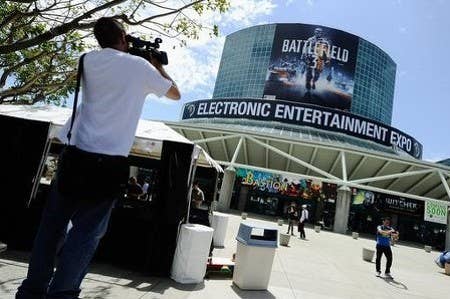Is E3 Still Relevant?
GamesIndustry International asks if gaming's greatest spectacle can change with the industry
Another year, another cramped convention centre in Los Angeles playing host to the console business and its hangers on. It's loud, it's over-the-top, but does it still speak for the games industry as we know it in 2012? Is it a stubborn throwback to the days when consoles ruled the Earth, a show that reluctantly acknowledges the growth in mobile, tablet and online gaming but makes no bones about the preference for a publisher pissing contest? Or is it a show slowly changing with the times, like the creaking console businesses gradually facing a digital, portable future?
The E3 spectacle reverberates through the games business in June every year, but is it still representative and relevant to an industry that has changed almost entirely since the start of the current console cycle? Here, in our latest roundtable, GamesIndustry International's writers drape press passes over their shoulders and wade through the halls of the LA Convention Centre…
James Brightman
"E3 is beginning to feel a bit like a dinosaur, a relic of a past golden age"
James Brightman
The games industry has changed dramatically since the first E3 Expo in 1995, put together by the Interactive Digital Software Association (now the Entertainment Software Association). Why, then, hasn't the annual trade fair evolved with it? The world of consoles isn't the only game in town in 2012, and yet only a handful of exhibitors at E3 are purely social/mobile focused. Truth be told, E3 is beginning to feel a bit like a dinosaur, a relic of a past golden age.
That's not to say that consoles are dead, and that E3 is fundamentally useless. E3 still serves its purpose as the grand spectacle that it is, drawing huge attention to the industry for a few days each year, and preparing journalists, retailers and retail buyers for the upcoming holiday season. But the fact is that it's misrepresenting what the games industry actually is today. Whereas GDC appears to be broadening its scope and shining a spotlight on social and mobile companies, E3 almost seems to be doing the opposite. Like an ostrich with its head plunged into the sand, the ESA seems oblivious to this.
David Radd
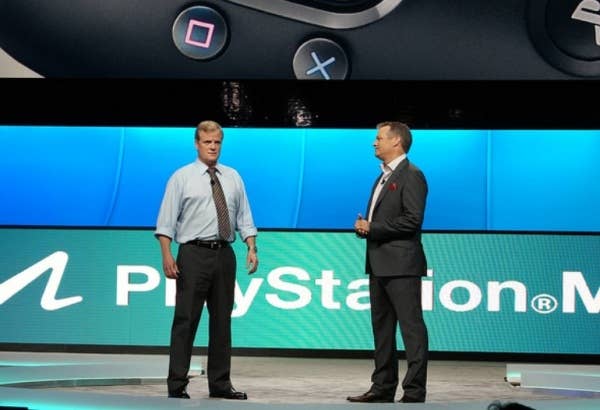
E3 is still a very important event to the AAA gaming industry. When it was running in a diminished form for a couple of years, it left a hole where a lot of positive mainstream media coverage usually emerged from. Sony, Nintendo and Microsoft benefit hugely from the attention on their press conferences and it's still the best place for people in the games industry to meet and hash out business.
However, E3 has not done a good job of representing the entirety of what gaming is these days. Indie, mobile and social titles are hugely underrepresented. Also, the importance of the event has been diminished by major publishers making announcements at other times of the year. Since they no longer have to represent themselves to a large number of buyers (the true reason E3 was created) they show off games on their own timetable and often at their own events. Finally, other major industry events, sort of "mini-E3s" have stolen some of the thunder of E3 (like Gamescom, Tokyo Game Show, PAX and the Eurogamer Expo) allowing publishers to have multiple touchpoints with consumers and not try to cram all their major announcements in one week in June.
E3 still represents a part of the gaming market worth billions of dollars, and it's value in the intangibles for that part of the industry is such that it will likely still occur for the rest of the decade. However, the event faces obsolescence if it doesn't include much more than the largest, most expensive titles in an industry about so much more than retail these days.
Ben Strauss
I'm still iffy on why there seems to be continued discussion on the 'end of E3' as we know it. The lineup this year from all three big publishers, all three manufacturers and a goodly amount of PC and mobile developers look pretty darn impressive. I mean sure, the landscape is continuing to change, but for companies to blow off E3? That's for Valve and Blizzard to do. For everyone else, this is the Super Bowl (and Valve and Blizzard only show up when they intend to steal the show).
E3 is just going to see old hands leave and new talent come in, and on different platforms. More attention will eventually be paid to mobile titles, less (if any) attention to an utterly useless middle-market. This isn't about a drastic change - this is about ebb and flow. This talk comes up at the end of each generation it seems, and I don't see this being another early '80s scenario for gaming. Next year will more than likely kill any of this discussion.
Steve Peterson
The answer is contained within the question; once you find it necessary to ask if E3 is still relevant, it is apparent that it's not as relevant as it was. More precisely, E3 is both more relevant and less relevant than it once was.
E3 is more relevant to publishers of console games, who are facing the fourth year of a declining market and the most perilous hardware transition in 20+ years. E3 is their best chance to draw attention to their products and boost their company image to the mainstream media; it's the one event of the year where mainstream media really pays attention to games. Each publisher will work hard to get a larger share in a shrinking pond, while wondering if new consoles will bring in more customers or just the current ones.
"E3 is a red carpet for the big three platform holders and other publishers to strut their stuff and give the community an idea of where the year is headed"
Mike Williams
E3 is less relevant in the expanded view of the gaming industry, which now includes the fast-growing areas of mobile, social, online, streamed games, and a variety new business models, including free-to-play, virtual goods, subscription, ad-supported and others. Digitally distributed content will outstrip physical content in revenue in the near future. There are billion-dollar game companies who don't even care what happens at E3, since it doesn't affect their part of the game business.
Mike Williams
E3 is still relevant. It stands as a monument to pomp and circumstance for the industry, and a red carpet for the big three platform holders and other publishers to strut their stuff and give the community an idea of where the year is headed.
Is the show slow to change? Of course, but so are other large events. GDC Online, focused primarily on mobile and social titles, only started in 2010. Even the consumer-focused PAX just recently started to have a considerable indie game presence. The events will shift with the landscape. I don't think there will ever be a significant social presence at the show, but that's just because there's no ramping hype for those games. E3 is all about the pre-release hype.
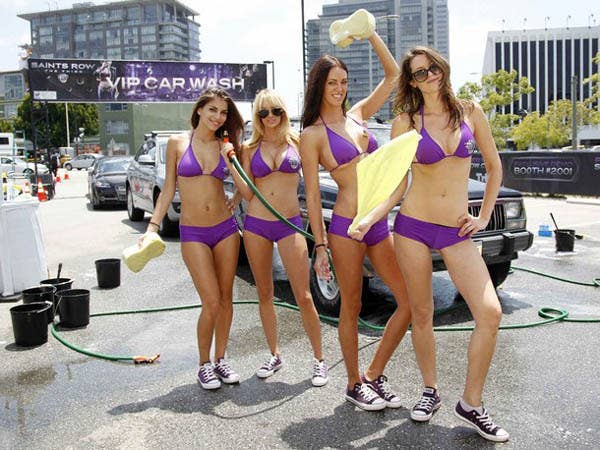
Certain studios like Valve and Blizzard will continue to skip the show. Some European developers will focus their efforts on Gamescom or Eurogamer Expo, like many Japanese developers already do with Tokyo Game Show. Mobile platform holders like Apple and Google will continue to do their own thing.
It's an ongoing evolution and I think E3 will stay in its place as long as Nintendo, Sony, and Microsoft are running the console show. So we'll see where this new generation of consoles takes us before calling for the death of their biggest showcase.
John Benyamine
I go to two shows every year: E3 and the Game Developers Conference (GDC) in San Francisco. After doing this for over a decade, I always arrive at the same conclusions.
GDC is the games industry's barometer. It is a way to measure what's hot in gaming right now, and where we see the industry headed in the next year or two. In the past few years, attending the show and listening in on key sessions and lectures foretold the rise of mobile and social gaming, the risks involved in big budget console titles, and the increasing influence of the independent gaming scene.
On the other hand, E3 gives me a sense of the bullishness and attitude of the video game companies that make up the vast majority of the show floor. Unfortunately, the value of that analysis seems dampened by hollow stories about booth babes being banned from the show, moving to a small venue in an airport hangar in Santa Monica, or show booth oneupsmanship displayed in the swarming South Hall.
"As Gree continues its expansion, is it so inconceivable that it could be the biggest booth at E3 within the next couple of years?"
Dan Pearson
In recent years, publishers have reacted with an increasing number of pre-E3 events reminiscent of an insultingly-long pre-game show before the big football match. This is a necessary use of everyone's time as now anyone with a passing connection to the word "game" is given access to the crowded show floor where games struggle to capture center stage.
At the end of over a decade of covering the show, I still love E3 for its over-the-top pomp and Vegas-like thrills, and I'll go every year they put it on. Unfortunately, it doesn't make up for the fact that the show is just a great after-party to the press events that happen earlier in the week.
Dan Pearson
I think that, like the console business and many of the major publishers themselves, E3 has shown all the signs of classic 'supertanker syndrome'. Vast, expensive and highly specialised, E3 has taken too long to redirect its course, allowing more nimble competitors like Gamescom to steal a march on markets like mobile and social.
The show obviously has a hugely symbiotic relationship with AAA development. As Mike points out, E3 is a circus, a parade day for the huge marketing budgets of the platform holders and the likes of Activision, EA and Ubisoft to wow and dazzle audiences and buyers, and to get their names and products a spot on the evening news without having the word "shooting" attached.
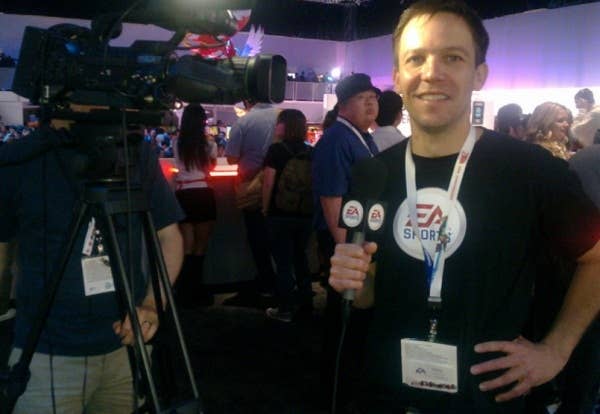
It does this brilliantly. I don't know of any games journalist who doesn't experience at least a little shiver of anticipation when watching the platform holders' presentations. Rumours are confirmed or obliterated in those brief hours, games announced, headlines written. Years with hardware reveals generate insane amounts of copy, even when those announcements leave everyone a little bemused. Every year, it's the most fact-intensive period in any game journo's calendar. It's exhausting, even when you're covering it remotely.
Despite all that, the gaps in E3's remit are beginning to show. For what is still essentially a trade show, powered by and run for the areas of the industry which are making money, E3 has a shocking lack of social and mobile coverage. That's partly because those industries haven't fully engaged with these events yet, but they're certainly starting to.
Earlier this year, Yoshikazu Tanaka, CEO of Japanese social/mobile behemoth Gree, told me that his company had the largest stand at TGS, a smaller and less glitzy show than E3, but one which has historically been similarly focused on AAA console development. As Gree continues its expansion Westwards, acquiring companies and talent at an incredible rate, is it so inconceivable that it could be the biggest booth at E3 within the next couple of years?
Rachel Weber
Full disclosure, I've never actually been to E3. I've watched others pack up their dictaphones and notebooks and tweet about the plane food, but I've always been back in the office with a take away and a can of Red Bull watching the live streams of conferences, or filtering the news from the million website and blogs. And I've never felt like I've missed anything from a press point of view. Any of the big announcements will be broadcast live to the world, some of that might even get leaked before anyone has even checked into their LA hotel room. E3 is a reflection of its triple-A subject matter, big, expensive, and slow to react.
"E3 is a spring break party populated by fresh-faced fanboys and an old boys' network. It's the least exciting part of the industry with the loudest voice"
Matt Martin
It's just not like the old days when you actually had to be there, with your (snigger) pen and paper, filing copy the next day. As for big interviews, most of the big publishers will now happily set up interviews a few weeks before, send over screenshots, videos, then just stamp them when a big fat embargo. They get their coverage, and the VIP gets to actually leave the booth to eat, pee, maybe even sleep. THQ aren't spending $1 million on a booth this year, but a UK showcase last week means they won't be short on game coverage.
The real value of those shows is now, and perhaps always was, what business people like to call Face Time. For journalists it's getting drunk with someone at an after party and hearing secrets you shouldn't, getting the gossip from bored PRs at the booth. Getting that tired studio head when he's just bored enough of regurgitating press releases to actually say something he shouldn't. For developers and publishers it's much the same, meeting and greeting, being seen at the show, showing shareholders that "WE'RE FINE, EVERYTHING IS FINE! LOOK AT OUR GIANT STAND."
Is that worth millions of dollars to publishers? The floorplan says yes for now, but with an industry that's more and more about indie developers, more and more about dealing directly with consumers, and faced with a playground of events such as GDC, Tokyo Game Show, Gamescom, PAX and the Eurogamer Expo, the old circus really needs to up its game to justify its ticket price.
Matt Martin
I love the spectacle and ridiculousness of it all, from the booth babes to the booming systems, and I think it's absolutely vital that the games industry uses a whole week to stand up and shout about itself as loudly as possible. But I also know E3 isn't really what the games business has been about for some time. This is the week when the rest of the entertainment and tech industries are really paying attention, and E3 should be the chance for the industry to celebrate what it is, thump its chest and be proud of its achievements.
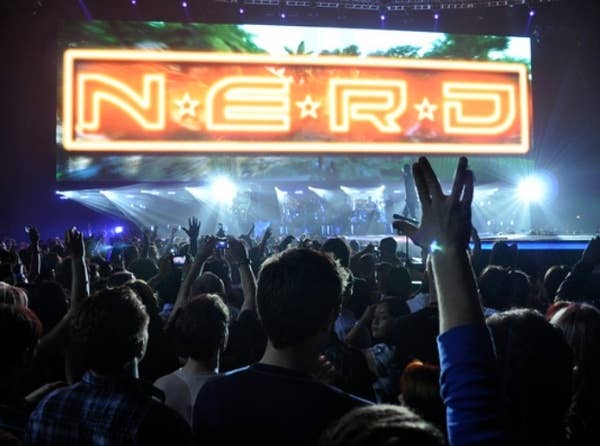
E3 doesn't represent the games industry anymore, or at least it doesn't represent the most exciting parts of the business - the growth, the new attitudes, the evolution. Console software and hardware is tired, limping along with incremental updates. Games are a rehash, services are ubiquitous. E3 is preaching to the converted. Sony, Nintendo, Microsoft and the third party publishers are telling their peers how important they are while those embracing the new games economy - mobile, social, digital - are talking to an entirely new audience of consumers and businesses that are inspired and receptive to new forms of entertainment and delivery.
E3 is a spring break party populated by fresh-faced fanboys and an old boys' network. It's the least exciting part of the industry with the loudest voice. It's still a good party, but that's one hell of a bar bill to wake up to. And if you're just watching Los Angeles for new console announcements and sequels to a favourite game, you're missing out on the progression towards an entirely new games industry growing across the globe.
